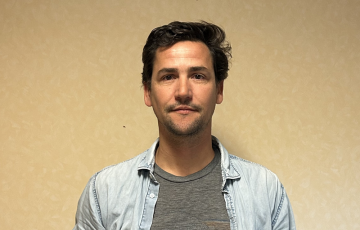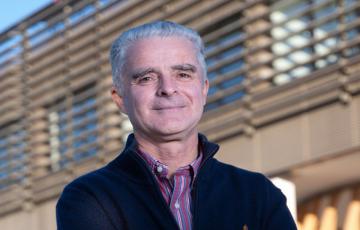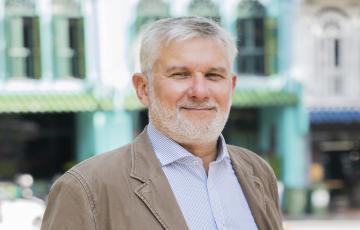Fonderie de Roquevaire forges a new future with Sogema
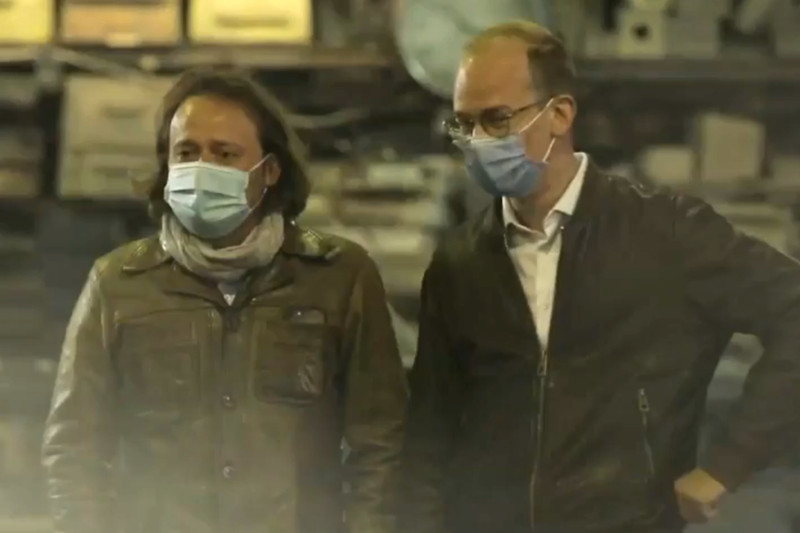
A company takeover story of living heritage in Provence
By selling Fonderie de Roquevaire to the Aveyron-based Sogema group, Nicolas Suzanne secures a future for his family's business. The craftsmanship passed down from generation to generation will stay with the company, as will all personnel. When he was looking for solutions to save the foundry, he met with Provence Promotion, which supported his efforts. The economic fallout from the public health crisis accelerated his decision-making process. In August 2020, the torch was passed to Sogema, a technical assistance company with general installation expertise, and the benefits are already apparent.
Hit with a significant drop in government orders and faced with growing international competition (from Eastern Europe, then Asia) Nicolas Suzanne was determined to save the company, which he and his cousin Fabrice Suzanne have been leading since his father's retirement in 2011. For Nicolas Suzanne, and for the Commercial Court of Marseille, which oversaw his case, it was out of the question to let the expert knowledge amassed since 1958 disappear. Fonderie de Roquevaire specializes in urban furniture (lampposts, public benches, parking bollards, etc.), but the foundry also produces small runs for manufacturers, artwork, architectural and decorative items, and ballast and counterweights for lifting, transportation and maritime operations.
From seeking investors to seeking a buyer
To overcome his firm's challenges, Nicolas Suzanne first considered opening up the company to financial partners. That is when he discovered Provence Promotion, which pointed him toward its Go Between in Provence program. "The agency was a responsive partner. They supported me and helped me develop my plan, which shifted from seeking investors to seeking a buyer," shares Nicolas Suzanne. He attended the workshops suggested to him, had his business appraised and, in 2015, earned the "Living Heritage Company" label, which attests to the excellence of the workmanship and industrial skills at the foundry.
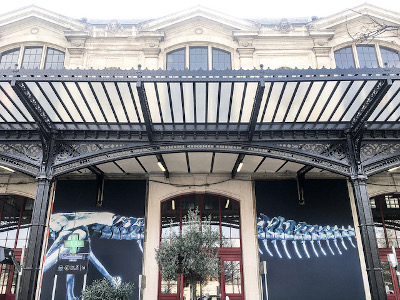 Despite the prestigious commissions that followed, such as restoring the glass canopy at the Gare d'Austerlitz train station and the gutters on the Bordeaux Cathedral, as well as financial support from the region, the company still could not get out of the red. It then began meeting with potential buyers until 2019, when it started talks with Sogema, a family company whose values are also grounded in exceptional craftsmanship.
Despite the prestigious commissions that followed, such as restoring the glass canopy at the Gare d'Austerlitz train station and the gutters on the Bordeaux Cathedral, as well as financial support from the region, the company still could not get out of the red. It then began meeting with potential buyers until 2019, when it started talks with Sogema, a family company whose values are also grounded in exceptional craftsmanship.
Shared values
"Fonderie de Roquevaire met all the criteria to join our consortium of companies and to play a role in our growth strategy," explains Lucas Schneyer, who has spearheaded Sogema's development strategy for two years. The Sogema group employs 120 people in France and posts annual sales of €12 million thanks to the diverse range of services it offers: design and engineering services for construction, renovation, general installations, structures, automation, software, etc.
"This acquisition may seem unusual compared to our industrial service activities for major order makers like BP, Total and Lafarge, but it is actually quite logical in the context of keeping production capacity on French soil." The coronavirus crisis accelerated the sale, which was finalized in August 2020. The entire team of 10 employees will stay on and Nicolas Suzanne will continue to manage the company.
Investments and R&D plan
The most pressing need at the foundry was to equip it with modern machinery. Sogema has earmarked €450,000 for new equipment and is preventing French production tools from making their way abroad by buying machinery from a Lyons company that is being dismantled.
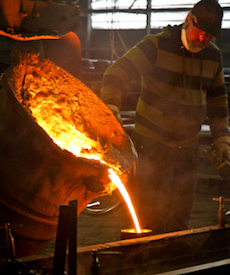
The essence of Fonderie de Roquevaire's business is recycling, which means that it has recovered brake disks and railroad tracks over the years for raw materials.
Sogema wants to go even further to reduce the foundry's carbon footprint and engage in the circular economy. It aims to institute an eco-design approach with, for example, hollow products that require less energy to manufacture. Research is also under way to enable the recycling of molding sand by injecting bacteria that can absorb the phenols released in the molds at the moment of casting.
Expand the scope of the project
Six months after the sale, the foundry is breaking even, with 60% of its business coming from urban furniture, 30% from industry and 10% from art foundry work. To reach profitability, Sogema intends to focus more on the sustainable construction and housing market. It is planning to launch a new line of products (railings, window sills, gate grills, etc.) for professionals (e.g. architects, real estate developers, local governments) and private consumers with the introduction of a B-to-C segment.

To expand the scope of the project, Sogema applied for two subsidies: one under the national stimulus plan and another from the region, which is currently being processed.
Sogema is open to other projects, especially those relating to manufacturing and construction, which is why it is working with Provence Promotion to identify avenues for growth. "What matters to us is connecting with businesses that would like to join a group of companies that believe in flat organization charts, taking pleasure in their work and entrepreneurial endeavors in a family setting. To diversify our offer, we want to leverage synergies of skills and mitigate our exposure to sector-specific risks," Lucas Schneyer concludes.


 +33 4 96 11 60 00
+33 4 96 11 60 00





